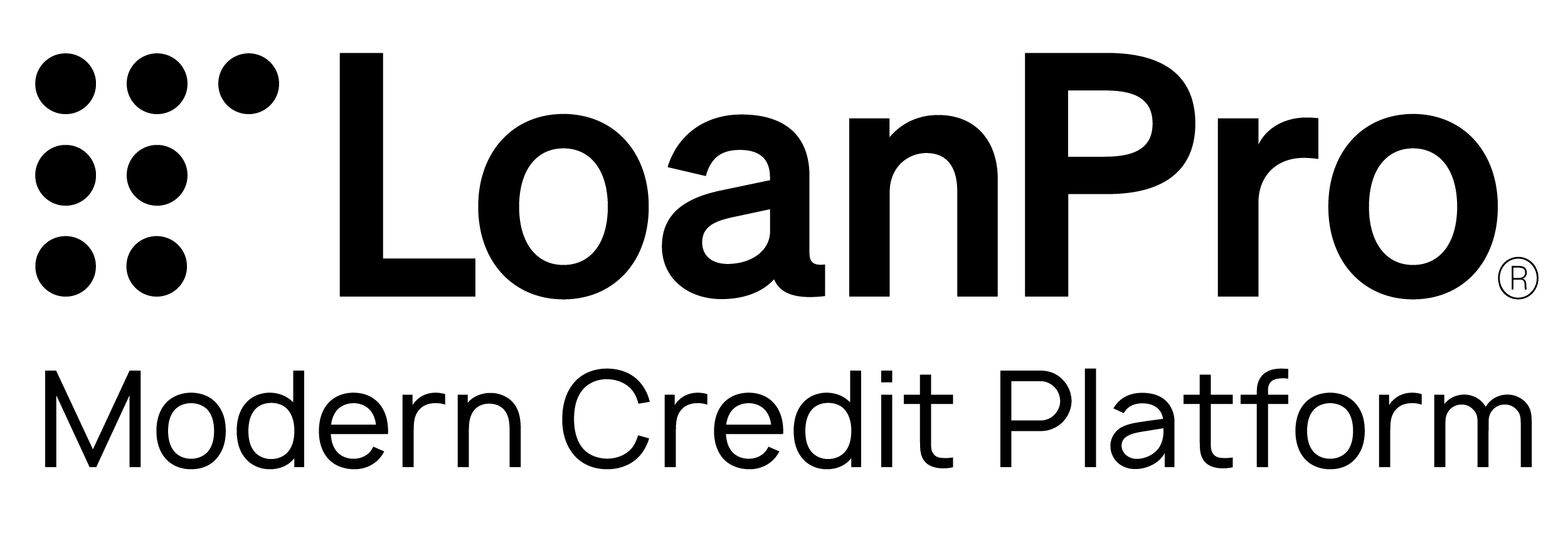VPC overview
LoanPro offers a true Virtual Private Cloud (VPC) environment, providing a dedicated AWS account with isolated data and software resources. We recommend this setup to lenders planning to build new products, scale existing ones, manage high transaction volumes, or meet specific security and compliance requirements.
Below, we outline some of the key advantages of upgrading to VPC. For more details, reach out to your regular LoanPro contact.
Key advantages
Here are the key advantages of VPC:
- Access to the API Calculator – This tool performs fast, accurate calculations for loans and lines of credit, including APRs, amortization schedules, daily interest accrual, and statements. It operates independently of the database as a stateless service, meaning data isn’t stored or tied to any specific environment. As a result, you can deliver near instant loan offers within your own app or website, while keeping calculations consistent and reducing application abandonment.
- A premium Service Level Agreement (SLA) – While our standard SLA already offers dependable support, our enhanced SLA provides additional guarantees, including uptime assurances, quicker response times, proactive incident management, and detailed incident reviews.
- System surveillance – With VPC, you get continuous monitoring of hardware and systems to ensure early detection and resolution of any issues.
- API scalability – VPC supports a higher volume of concurrent API calls, enabling you to handle growth and peak demand more efficiently.
- Extended testing period – You will have an extended testing period before deployment, giving you time to optimize and prepare. See more on this below.
- VPC Peering Connection – Establish a secure connection between LoanPro’s servers and your own AWS environment, giving you access to a dedicated, read-only database endpoint. This allows you to manage your data independently, including replicating it to your own systems or integrating it with a data warehouse or data lake. More on this below too.
Testing and release schedules
LoanPro’s VPC environment follows a quarterly release schedule. By default, all VPC users have a two-week testing period before updates are deployed to production. However, if you choose to purchase a staging environment, your testing window extends to 45 days, giving you more time to thoroughly test and prepare for updates.
Read more about our VPC release schedule here.
If you’d like to learn more about VPC, reach out to your LoanPro contact.
VPC Peering Connection
LoanPro stores our database on an Amazon Web Service (AWS) account. You want to copy some of the data, but giving our clients direct access would compromise the database's security. Instead, we let you use a Virtual Private Cloud (VPC) Peering Connection. We open the door for you so you can make copies, but that's where our role ends. At this point, the data is yours. You can move it wherever you want and store it however you like.
There are some benefits to hosting your database on your own AWS server, mainly, that you have total control over that database. Because they are inexpensive, reliable, and easier to set up, we recommend AWS servers over other companies' servers. Also, AWS charges users for moving data outside of their servers, so you'll save some costs by sticking with them. Similarly, keeping the same database schema will mean there is no confusion when you pull data from our database. If you are building a data warehouse or data lake, however, you may want to change the schema to better meet your needs. Lastly, different relational database types will offer certain benefits.
All of those choices are topics you'll want to discuss with your tech team (and possibly your partners' tech teams) to learn which options best suit your data needs.
This diagram shows a simple map of how the VPC Peering Connection would work. LoanPro's servers and data are shown in blue, your company is in orange, and a possible third party is shown with purple.
Setup process
LoanPro is happy to help set up a VPC Peering Connection and get you access, but your own developers will be better suited to build and maintain your own database. Here is a breakdown of what we can take care of and what you will need to do on your own.
| LoanPro Responsibilities | Client Responsibilities |
| Provide LMS as the system of record for our data. | Request and pay for a dedicated relational database server (RDS). |
| Provide access to the read-only endpoint of a dedicated relational database server (RDS). This includes creating client user and providing username and password access. | Accept the invitation to connect via VPC peering. |
| Gather information about the client's AWS account, create a VPC peering connection, and send an invitation to the client to connect. | Replicate LoanPro-provided database, if desired. |
| Set up a data lake or data warehousing relationship, if desired. | |
| Provide access to either the LoanPro-provided database or client replicated database when needed (e.g. for data warehousing, data lake, middleware, etc.) |
Was this article helpful?
Unclassified Public Data
